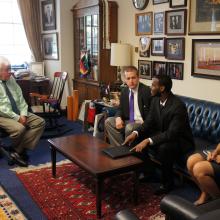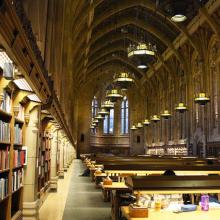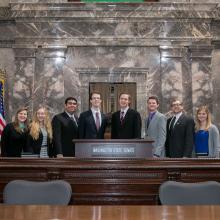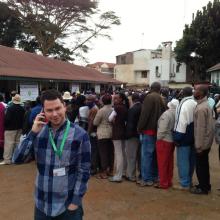Located in Seattle, a region known for its creativity and public policy innovation, the Department of Political Science is home to an inviting community of world-class scholars. We offer exceptional programs and mentorships at the undergraduate and graduate levels and emphasize hands-on learning and active research. Our faculty are leaders in the field and are committed to student success.
We have a long history of excellence in teaching and research. Political Science is one of the largest undergraduate majors in the College of Arts and Sciences, a reflection of our strong collective commitment to innovative and engaging teaching of a fascinating and important topic. Our graduate program provides a supportive environment for students conducting a wide range of original research. The department faculty features internationally renowned scholars who conduct path breaking and influential research on important questions about politics and policy. We are located in Seattle, one of the most beautiful and vibrant urban settings in the United States, in a region known worldwide for creativity and public policy innovation.
Undergraduate Education
Our undergraduate major succeeds though the efforts of dedicated faculty, graduate student instructors, and advisors. The department provides a wide range of opportunities for hands on learning and research, including sponsorship of undergraduate research fellows at our Center for American Politics and Policy and longstanding connections to legislative internship programs in Olympia and Washington DC. The department runs a model honors program and a very popular Writing Center where students get individualized help from peers and instructors. Our faculty and graduate students regularly win campus-wide teaching awards. Students are drawn to political science because politics and government are important and omnipresent in everyday life.
Students who take courses in the department become more incisive observers of politics and policy, both in the U.S. and around the world. More generally, students gain valuable analytic skills and familiarity with different social-science research methods used to study the political world. Our alumni go on to a variety of successful careers. Some choose careers that make direct use of their advanced knowledge of politics and government, including numerous high ranking state and federal elected officials, State Supreme Court judges, state and federal prosecutors, and the host of the region’s leading conservative talk-radio show. Many other alumni do not work directly in politics and policy, and instead use the more general analytic and critical thinking skills developed through coursework in a wide variety of endeavors. For example, alumni include high ranking executives with investment and financial services firms and the CEO of a large regional network of community health care organizations.
Graduate Education
The PhD program in political science provides students with rigorous methodological training and deep knowledge of the academic discipline of political science. Students are encouraged to take on large and important questions, including ones that cut across traditional subfield boundaries or that require use of multiple research methods. Graduate students have flexibility in constructing their areas of specialization, opportunities to gain teaching experience, and are heavily involved in research and publishing with faculty mentors. Teaching graduate students is typically a collaborative effort: Students work closely with multiple faculty members in different subfields, a practice that helps produce well-rounded dissertation projects that speak effectively to different research traditions. Our excellent job placement record is an important indicator of the success of our program.
Faculty Research
Faculty research focuses on a wide variety of important topics. Questions explored in widely cited and influential books and articles include: How can technology be used to monitor and prevent electoral fraud in developing countries? Why did the U.S., a country founded on a deep distrust of standing armies and centralized power, develop the most powerful military in the world? What is the role of emotion in international politics? How real is the “resource curse” that allegedly makes countries with natural resource economies underdeveloped and authoritarian? How is the Tea Party connected to earlier grassroots conservative movements? What is the relationship between religious liberty, economic growth, and political liberalization? How do international institutions that protect human rights help to secure constitutional democracy? The research accomplishments of our faculty include numerous book and article awards, prestigious fellowships, and extensive outside research funding. The department also hosts several research centers and institutes that help to support research and teaching, including the recently established Center for Environmental Politics.
Learn More
This department website includes much additional information about the department as well as links to affiliated departments and centers. Thank you for visiting.
Department Leadership
Chair: Rachel Cichowski, rcichows@uw.edu
Associate Chair: James D. Long, jdlong@uw.edu
Administrator: Ed Connery, econnery@uw.edu



